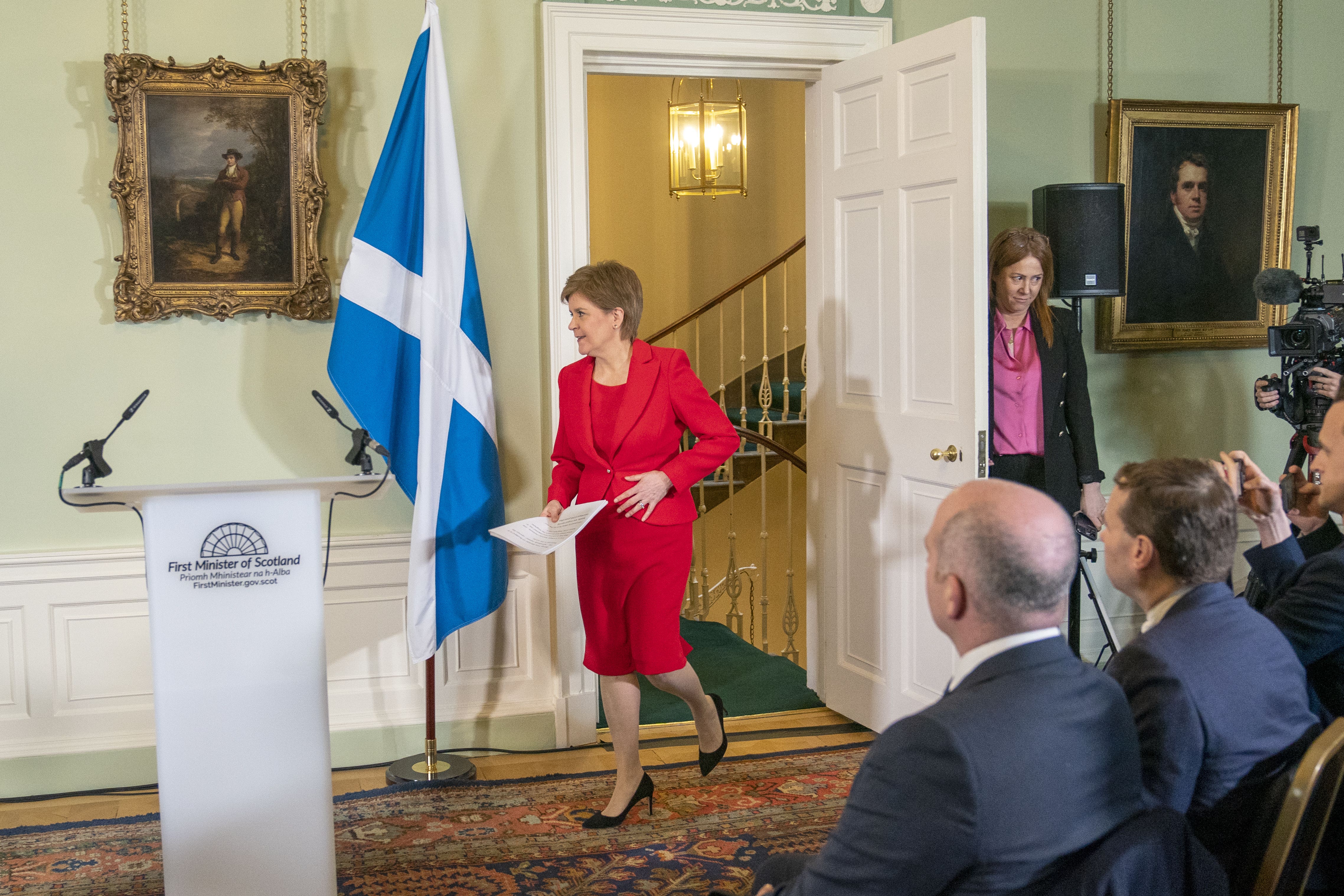Sturgeon resignation accelerated SNP’s poll decline, say experts
But pollsters said the backing for Scottish independence had not fallen to the same degree as the SNP.

Your support helps us to tell the story
From reproductive rights to climate change to Big Tech, The Independent is on the ground when the story is developing. Whether it's investigating the financials of Elon Musk's pro-Trump PAC or producing our latest documentary, 'The A Word', which shines a light on the American women fighting for reproductive rights, we know how important it is to parse out the facts from the messaging.
At such a critical moment in US history, we need reporters on the ground. Your donation allows us to keep sending journalists to speak to both sides of the story.
The Independent is trusted by Americans across the entire political spectrum. And unlike many other quality news outlets, we choose not to lock Americans out of our reporting and analysis with paywalls. We believe quality journalism should be available to everyone, paid for by those who can afford it.
Your support makes all the difference.The year since Nicola Sturgeon’s resignation announcement has accelerated a decline in the SNP’s opinion poll leads, experts have said.
However, support for Scottish independence has hardly changed at all in the 12 months since Ms Sturgeon’s Bute House announcement, and has instead proved “stubbornly unwilling to fall”.
Pollster Mark Diffley, a former director of Ipsos Mori in Edinburgh, said the drop in support for the SNP and the related upturn in support for Labour meant the upcoming general election would be the most competitive in Scotland since 2010.
He told the PA news agency: “What seems to have happened is that Nicola Sturgeon’s resignation and then, equally as impactfully, the police investigation into the party finances, have sort of accelerated the fall in support that the SNP has seen.”
He highlighted that there were signs of SNP support falling before Ms Sturgeon’s Bute House announcement.
Mr Diffley said: “In the last year, basically they’ve lost around sort of 10 or 12 percentage points in support.
“So, gone from in the polls an average of sort of mid 40s, down to an average of being in the mid 30s.”
If the current polls are borne out in an election, he said, Labour would make “significant gains” particularly in the central belt of Scotland.
Anas Sarwar’s party is picking up voters from “completely different directions”, Mr Diffley said, with former Conservative and SNP voters indicating they could vote Labour.
“About one in five of 2019 Tory voters in Scotland, have now come to Labour,” Mr Diffley said.
“And about one in five SNP voters from 2019 have gone to Labour as well.
“So Labour is picking up in pretty much equal measure, disaffected Tories and disaffected SNP voters.”
Keeping such a coalition together will present a “challenge” in the later Holyrood election campaign, he said.
Professor Rob Johns of Southampton University is part of the Scottish Election Study group of academics.
He said support for a Yes vote in a referendum on Scottish independence had remained “stubbornly unwilling to fall” despite the downward trajectory for the SNP’s polls over the last year.
Prof Johns said: “One of the features of the referendum campaign was, although it was very much an SNP thing in many ways, it clearly transcended that party.”
He added: “I think it’s reasonable to say that the SNP has lost about one in five of its Westminster vote intention, and most of that has gone to Labour.
“I think they would lose a little more to abstention in an election.”
Prof Johns said the SNP’s decline in the polls preceded Ms Sturgeon’s resignation, something which was not surprising given how long the SNP had been in power in Holyrood.
He said: “I do think there is a bit of an element of a kind of head of steam being built up, and then finally released with the combination of (Ms Sturgeon’s) departure and the chaos of the spring.”
An SNP spokesperson said: “After 17 years of delivering for people across Scotland – during which Nicola Sturgeon was first minister for more than eight years – a poll last week showed that the SNP remains the most trusted party on the economy, health, education and cost of living while the the Tory government is down and out – and Keir Starmer’s Labour Party is showing that the Westminster system is broken beyond repair.”